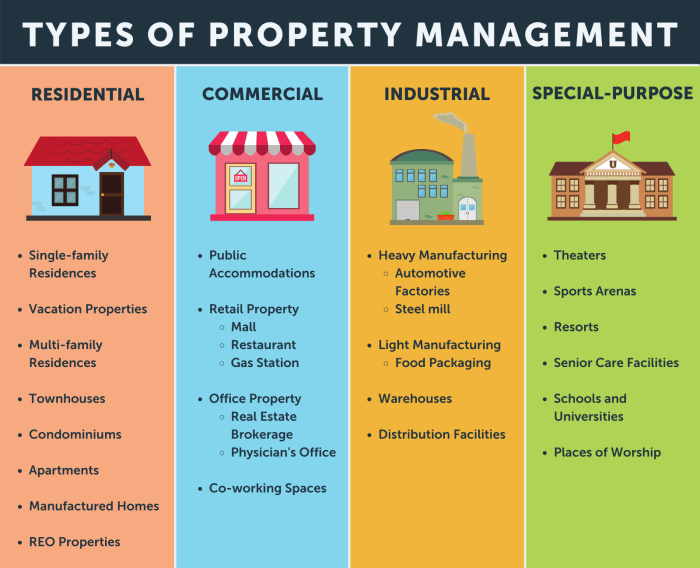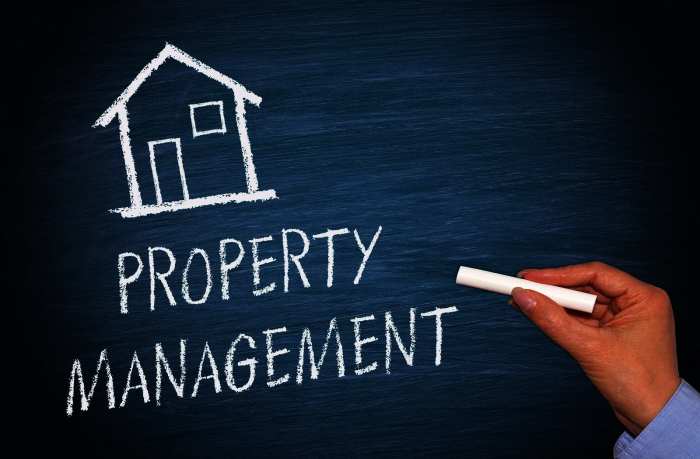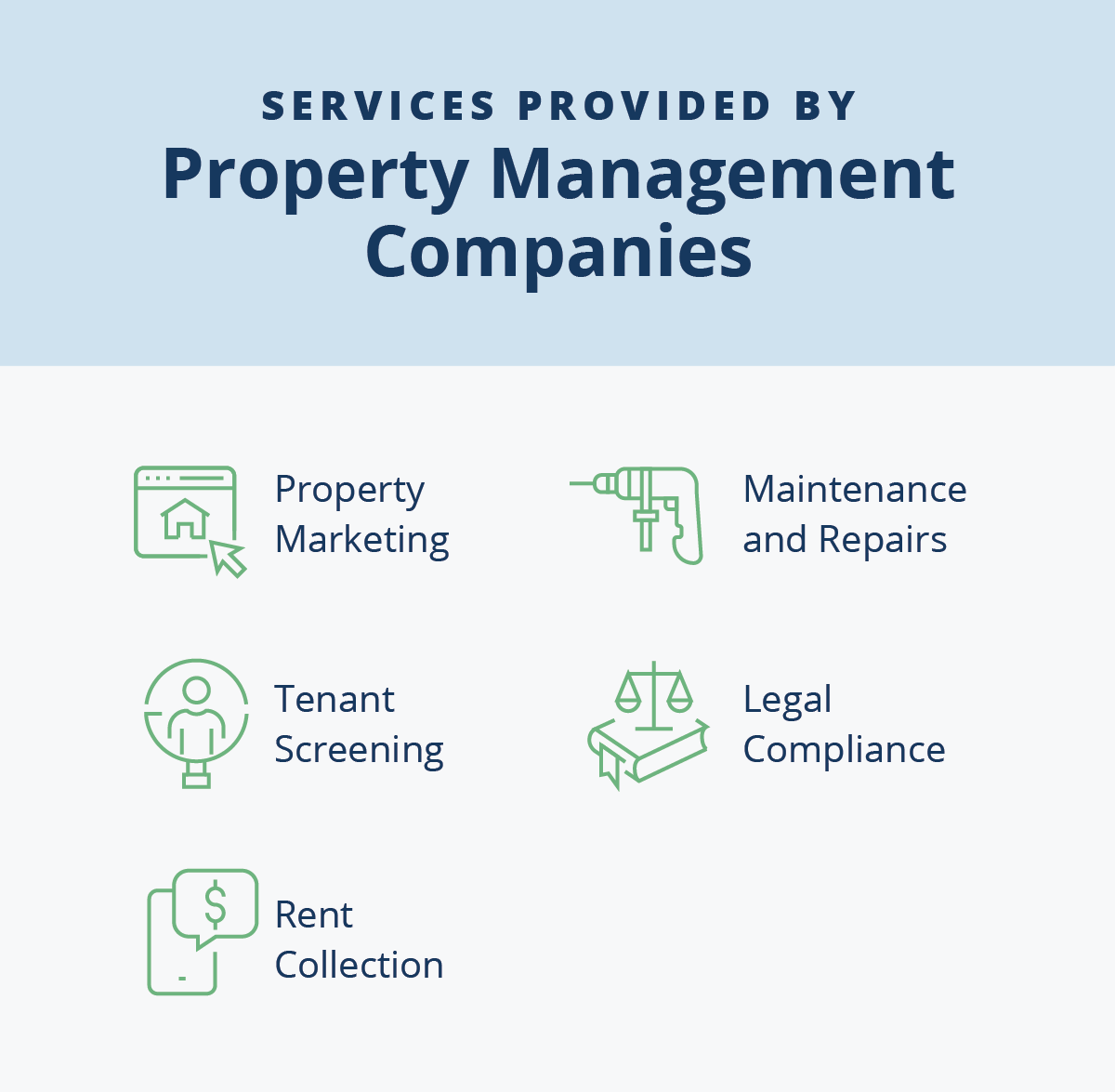Residential Property Management Services: A Comprehensive Guide
Embark on a journey through the realm of Residential property management services, exploring the intricacies and benefits that come with it. From defining the services to delving into the responsibilities, this guide aims to provide a holistic view of this essential aspect of property ownership.
Overview of Residential Property Management Services

Residential property management services involve overseeing and managing properties on behalf of the owner. This includes tasks such as finding and screening tenants, collecting rent, handling maintenance and repairs, and ensuring that the property complies with local regulations.
Importance of Residential Property Management for Property Owners
Residential property management is crucial for property owners who may not have the time, expertise, or desire to manage their properties themselves. By hiring a property management company, owners can ensure that their properties are well-maintained, tenants are properly screened, and rental income is maximized.
- Ensures Timely Rent Collection: Property managers are responsible for collecting rent from tenants on time, ensuring a steady income stream for property owners.
- Maintenance and Repairs: Property managers oversee maintenance and repairs, ensuring that the property is kept in good condition and addressing any issues promptly.
- Tenant Screening: Property managers handle the process of finding and screening tenants, including conducting background checks and verifying references to find reliable renters.
- Legal Compliance: Property managers ensure that the property complies with local regulations and handle any legal issues that may arise, such as evictions or disputes with tenants.
Typical Responsibilities of a Residential Property Management Company
Residential property management companies have a range of responsibilities to ensure the smooth operation of the properties they manage. These may include:
- Marketing and Advertising: Property managers market the property to attract potential tenants and handle the advertising of vacancies.
- Lease Agreements: Property managers create and enforce lease agreements, outlining the terms of the rental agreement and the responsibilities of both the tenant and the owner.
- Property Inspections: Regular inspections of the property to ensure that it is well-maintained and to address any issues that may arise.
- Financial Management: Property managers handle the financial aspects of the property, including collecting rent, paying bills, and providing financial reports to the owner.
Benefits of Hiring Residential Property Management Services
Outsourcing property management can offer numerous advantages to property owners, from saving time and effort to increasing the overall value of their properties.
Increased Property Value
- Professional property management services can help maintain and improve the condition of the property, ensuring that it remains attractive to tenants.
- Regular maintenance and repairs can prevent small issues from turning into costly problems, preserving the value of the property over time.
- Efficient management can lead to higher tenant satisfaction, resulting in longer tenancy periods and reduced vacancies, ultimately increasing the property's profitability and value.
Time and Effort Savings
- Property management services handle tasks such as tenant screening, rent collection, maintenance coordination, and emergency response, freeing up the owner's time for other priorities.
- Experienced professionals can efficiently handle day-to-day operations and resolve issues promptly, reducing the owner's stress and involvement in the management process.
- Property owners can benefit from the expertise and industry knowledge of property managers, ensuring compliance with regulations and optimizing rental income.
Key Tasks and Responsibilities of Residential Property Managers
Residential property managers play a crucial role in overseeing the day-to-day operations of rental properties, ensuring that everything runs smoothly for both landlords and tenants.
Tenant Screening and Lease Agreements
Residential property managers are responsible for finding suitable tenants for rental properties. This involves conducting thorough background checks, verifying employment and income, and checking references to ensure that potential tenants are reliable and trustworthy. Once a suitable tenant is found, property managers also handle the preparation and signing of lease agreements, outlining the terms and conditions of the tenancy.
Maintenance and Repair Responsibilities
Property managers are also tasked with overseeing the maintenance and repair of rental properties. This includes responding promptly to maintenance requests from tenants, coordinating repairs with contractors or maintenance staff, and conducting regular inspections to ensure that the property is well-maintained.
Property managers are also responsible for resolving any issues that may arise during the tenancy, ensuring that the property remains in good condition throughout the lease term.
Tenant Relations and Communication

Effective communication between property managers and tenants is crucial for maintaining a positive and harmonious living environment in residential properties. Clear and open communication helps to address any issues or concerns promptly, leading to increased tenant satisfaction and retention.
Strategies for Resolving Tenant Issues and Conflicts
When dealing with tenant issues or conflicts, property managers should approach the situation with professionalism and empathy. Some strategies to resolve conflicts include:
- Active listening to understand the tenant's perspective
- Offering solutions that are fair and reasonable
- Communicating clearly and effectively to avoid misunderstandings
- Maintaining a calm and respectful demeanor during discussions
Fostering Positive Relationships with Tenants
Building positive relationships with tenants can help reduce turnover and create a sense of community within the property. Property managers can foster positive relationships by:
- Being responsive to tenant inquiries and requests in a timely manner
- Organizing community events or activities to promote tenant engagement
- Showing appreciation for long-term tenants through gestures like holiday cards or small gifts
- Regularly seeking feedback from tenants to address any concerns or suggestions for improvement
Wrap-Up

In conclusion, Residential property management services play a crucial role in maintaining and enhancing the value of properties, while also ensuring smooth relationships between owners and tenants. By understanding the key tasks and benefits associated with these services, property owners can make informed decisions to optimize their investments.
FAQ Corner
What exactly do residential property management services encompass?
Residential property management services involve overseeing day-to-day operations, tenant relations, maintenance, and financial aspects of a property.
How can residential property management services increase property value?
By ensuring proper maintenance, efficient tenant screening, and timely repairs, property managers can enhance the overall appeal and value of a property.
What are some strategies for resolving tenant issues professionally?
Effective communication, prompt responses, and fair conflict resolution practices are key strategies for handling tenant issues in a professional manner.